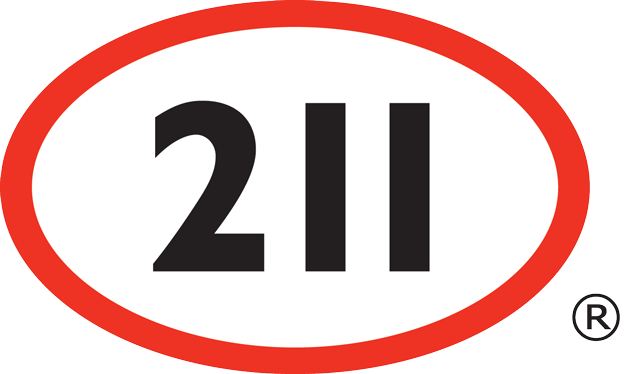Income Tax Clinics for Low-Income People


Find Community and Social Resources
Find services by topic
Looking for a job can be a challenge for many people. But for individuals living with physical, intellectual, or sensory limitations, or mental health conditions, the obstacles can be even greater. Lack of accessibility, employer bias, and workplaces not adapted to diverse needs are just some of the barriers. Fortunately, there are resources available to support people with disabilities in their job search, and also to help employers create more inclusive work environments.
Several specialized organizations offer tailored support to help individuals enter the job market. This can include:
For example, the organization Action main-d’œuvre offers employment support services for people with intellectual disabilities or autism in the Greater Montréal area. A counsellor is assigned to work closely with the individual throughout each stage as needed, and also provides follow-up after hiring to support job retention.
Some organizations also offer customized training programs to help develop professional skills or explore new career paths. This is the case with SDEM SEMO Montérégie, which provides a wide range of services: job search and retention assistance, adapted training, work placements, and even support for starting a business or becoming self-employed.
“The more support a client needs, the more we’ll be there after they’re hired.”
— Christine Larrivée, Communications and Liaison Officer at SDEM SEMO Montérégie
In Laval, APADHL (Aide aux Personnes Âgées, Défavorisées et Handicapées de Laval) offers daytime activities for individuals whose limitations present a major obstacle to workforce participation. Participants work at their own pace, in a group setting, on simple, repetitive tasks (e.g., labelling products) for a partner employer. These activities aim to foster autonomy, encourage mutual support, and help participants develop new skills.
|
Christine Larrivée is the Communications and Liaison Officer at SDEM SEMO Montérégie. For her, the key is to start with the person’s needs. “Our services are really adapted on a case-by-case basis. We start by identifying what the person wants, and from there, we approach companies and build a tailored position — which often opens the door to other opportunities.” Adaptation measures are diverse: sign language interpretation, support with workplace relationships for people with autism, or ergonomically adapted furniture for those with physical limitations. “We’re also there to support job retention. If someone is very independent, we might just serve as a liaison with the employer and then step back. For others, we’ll be more involved. Even a simple schedule change or new supervisor can be destabilizing for some individuals. In those cases, we step in to help with the transition,” she adds. |
By the Numbers
Between 2017 and 2022 in Quebec, the proportion of people living with a disability increased by 4.8%, reaching 21% of the population.
Getting a job is one step — but the workplace also needs to be inclusive and accessible. Some services help employers adapt job roles by adjusting hours, modifying workspaces, or providing appropriate equipment.
In Montréal, for example, SPHERE offers personalized support to businesses to improve inclusion of people with disabilities, including assistance with financial and logistical aspects of integration projects. An “employer toolkit” is also available, featuring informative videos and partner testimonials.
In general, most organizations that specialize in employment for people with disabilities offer services to both individuals and employers — such as Action main-d’œuvre, APADHL, and SDEM SEMO Montérégie.
“No matter the disability, we identify the person’s limitations and strengths. And every disability comes with strengths that should be highlighted.”
— Christine Larrivée, SDEM SEMO Montérégie
“There will always be barriers and prejudices,” explains Larrivée, “but once you try it, you’ll be convinced. We identify both the challenges and the strengths of each person — and our job is to create the perfect match with the employer.” She shares one success story: “We once worked with an autistic individual who used drawing as a way to self-regulate. At first, the employer set up a space where they could draw during breaks. Eventually, as the company was redesigning its assembly lines, this individual was given the task of drawing the new layouts! In many cases, accommodations don’t cost a thing — and what may seem like a challenge at first can become a real asset.”
Larrivée also notes the positive relationships the organization maintains with many employers, who are increasingly open to hiring people with disabilities. “Some may have hesitations at first, but once they try, they’re won over. And when a strong relationship is established, the collaboration can continue long-term.”
Beyond community-based resources, government programs also exist to encourage employers to hire people with disabilities. These can include wage subsidies, training opportunities, internships, or financial assistance for hiring. Visit the Government of Quebec’s website to learn more.
Every situation is unique. To be directed to the most appropriate resources for your profile and region, call 211 or use the chat feature at the bottom right of the screen. A counsellor will guide you toward the organizations best suited to your needs. The service is free, confidential, and available 7 days a week.
You can also visit the website of ROSEPH (Regroupement des organismes spécialisés pour l’emploi des personnes handicapées), which brings together 25 specialized employment organizations across Quebec.
Ce contenu a été traduit grâce au soutien du Secrétariat aux relations avec les Québécois d’expression anglaise.




